 by our College Data Analytics Team
by our College Data Analytics TeamTennessee Tech University total enrollment is approximately 10,177 students. 7,834 are undergraduates and 325 are graduate students.
Male/Female Breakdown of Undergraduates
The full-time Tennessee Tech University undergraduate population is made up of 46% women, and 54% men.
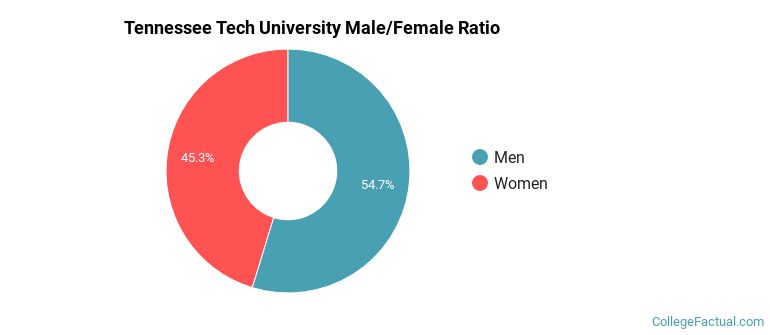
For the gender breakdown for all students, go here.
Tennessee Tech University Racial/Ethnic Breakdown of Undergraduates
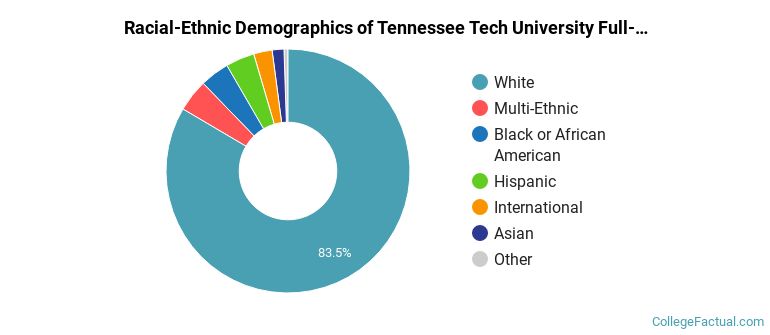
| Race/Ethnicity | Number |
|---|---|
| White | 6,532 |
| Hispanic | 334 |
| Multi-Ethnic | 324 |
| Black or African American | 317 |
| Asian | 135 |
| International | 133 |
| Unknown | 41 |
| Native Hawaiian or Pacific Islander | 2 |
See racial/ethnic breakdown for all students.
Male/Female Breakdown of Graduate Students
About 60% of full-time grad students are women, and 40% men.
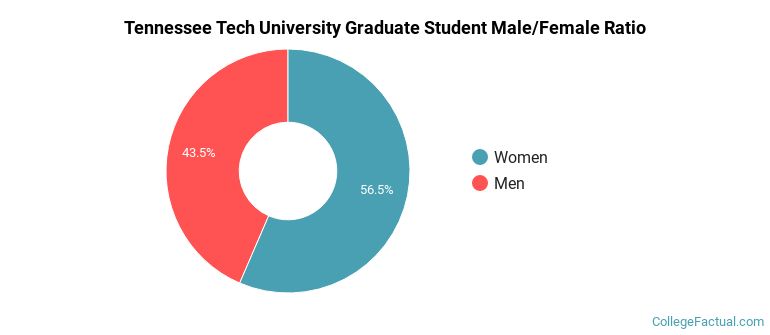
For the gender breakdown for all students, go here.
Tennessee Tech University Racial-Ethnic Breakdown of Graduate Students
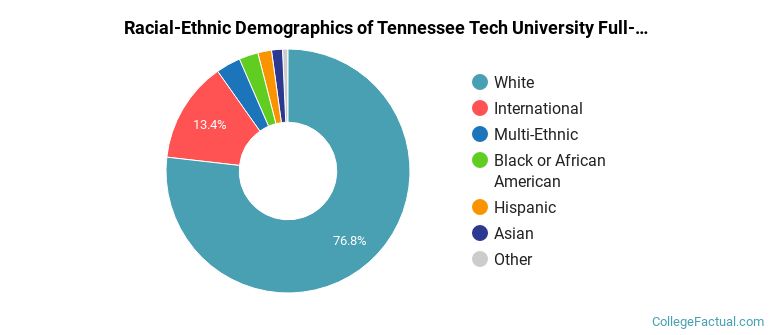
| Race/Ethnicity | Number |
|---|---|
| White | 263 |
| International | 36 |
| Asian | 7 |
| Black or African American | 7 |
| Multi-Ethnic | 7 |
| Hispanic | 4 |
| Unknown | 1 |
| Native Hawaiian or Pacific Islander | 0 |
See racial/ethnic breakdown for all students.
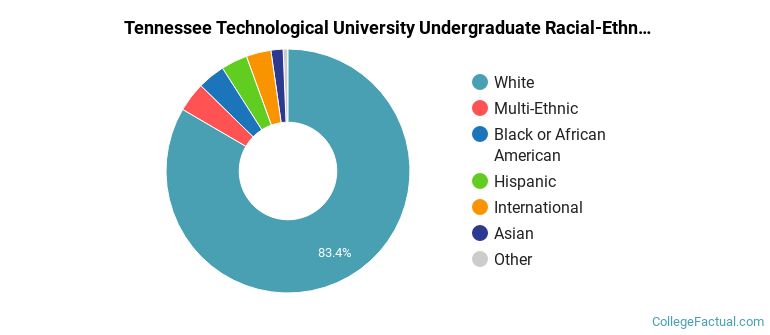
| Race/Ethnicity | Number |
|---|---|
| White | 8,444 |
| Hispanic | 406 |
| Multi-Ethnic | 404 |
| Black or African American | 402 |
| International | 251 |
| Asian | 178 |
| Unknown | 69 |
| Native Hawaiian or Pacific Islander | 3 |
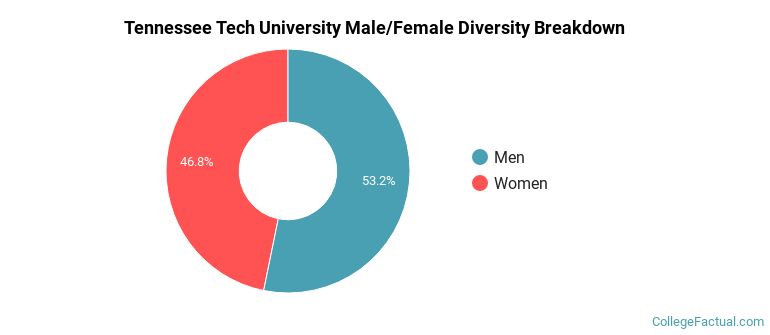
There are approximately 4,853 female students and 5,324 male students at Tennessee Tech University.
Tennessee Tech University ranks 1,560 out of 2,183 when it comes to geographic diversity.
3.72% of Tennessee Tech University students come from out of state, and 2.99% come from out of the country.
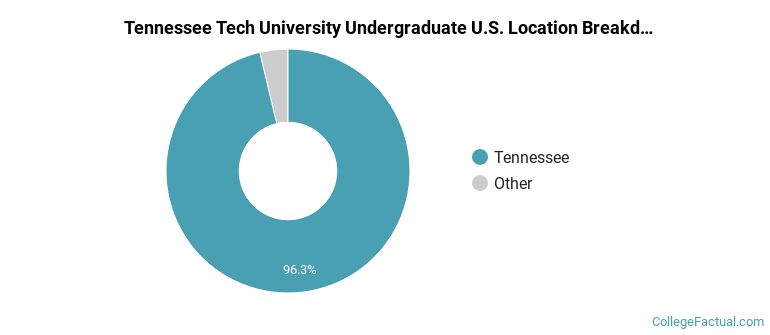
The undergraduate student body is split among 20 states (may include Washington D.C.). Click on the map for more detail.
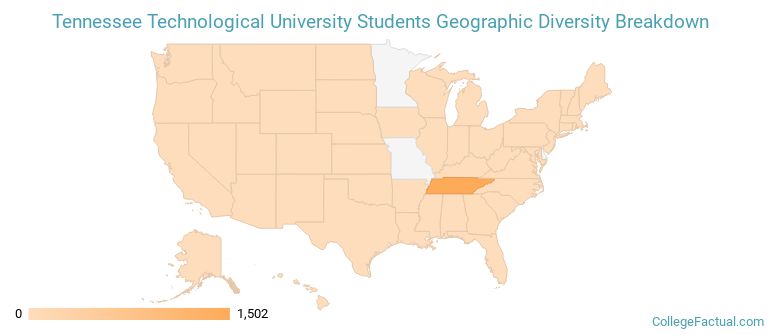
| State | Amount |
|---|---|
| Tennessee | 1,502 |
| Georgia | 11 |
| Alabama | 6 |
| Kentucky | 6 |
| South Carolina | 6 |
Students from 71 countries are represented at this school, with the majority of the international students coming from Kuwait, Saudi Arabia, and India.
Learn more about international students at Tennessee Tech University.
A traditional college student is defined as being between the ages of 18-21. At Tennessee Tech University, 59.79% of students fall into that category, compared to the national average of 60%.
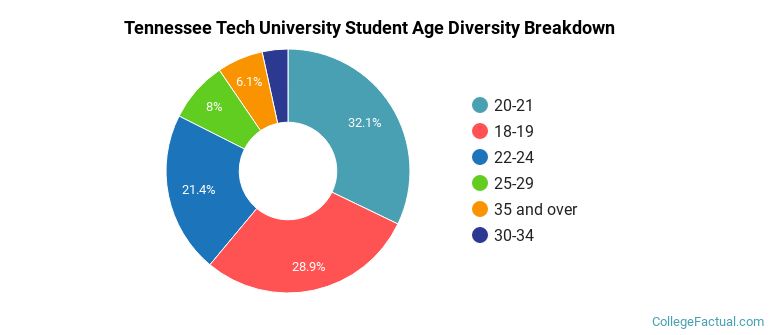
| Student Age Group | Amount |
|---|---|
| 20-21 | 3,307 |
| 18-19 | 2,973 |
| 22-24 | 2,200 |
| 25-29 | 828 |
| 35 and over | 628 |
| 30-34 | 351 |
| Under 18 | 0 |
Footnotes
*The racial-ethnic minorities count is calculated by taking the total number of students and subtracting white students, international students, and students whose race/ethnicity was unknown. This number is then divided by the total number of students at the school to obtain the racial-ethnic minorities percentage.
References
Department of Homeland Security Citizenship and Immigration Services
Image Credit: By Brian Stansberry under License
Read College Factual's Diversity Ranking Methodology.